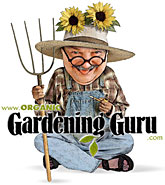This is a conversation with Atina Diffley about the loss of one organic farm to development and the fight to protect its replacement from an oil pipeline. She talks about the ecological damage and spiritual wounds she, her children, their father, and his family farm suffered when The Gardens of Eagen went piecemeal under the bulldozer. Then she describes how she took on the Koch brothers and won. Her memoir Turn Here Sweet Corn: Organic Farming Works came out this spring.
I owe this interview to one of my oldest friends, who works at the food co-op The Wedge in Minneapolis, or perhaps to her boyfriend, who edits the food section of a local paper. When Antonio told Sally about the book, Sally promptly called me. (If I had all the right feeds set up, I’d already have known about it, but oh well.)
Sally has been celebrated elsewhere in these pages as a terrific cook, and while her skill deserves most of the credit, some of it goes to the ingredients, which come almost exclusively from the Wedge. That’s fitting; the Diffleys had sold food to the Wedge (and several other Twin Cities co-ops) for decades, and it was the Wedge that bought the Gardens of Eagen from the Diffleys in 2007. (Call the store on Tuesdays, and it will probably be Sally who answers the phone.)
After Sally’s tip, I looked up the book and its author. Later that day, I called Atina. I’ll never be sorry.
When Atina partnered with Martin Diffley—in life and in farming—on his family farm south of the Twin Cities, they already knew that the land would eventually be sold and developed. But that knowledge did not begin to prepare them for the experience itself.
Reading Atina’s book, or (I hope) listening to this interview, is somewhat similar: we all know that the U.S. is losing the family farm; we’ve seen the movies with the farm auctions; but hear the process described by someone who has lived through it—well, that’s different. Listening to Atina describe how machines tore up trees, leveled hills, and emptied the landscape of wildlife is actually painful.
Yet her voice remains quiet, which somehow makes the story more poignant. Perhaps even more amazing, she has kept her sense of humor. She laughs wryly as she describes how her son started smashing watermelons and chucking potatoes at customers, as encroaching development gradually restricted his scope to the farmstand.
But she’s not laughing when she interprets this violence as the way the boy acted out the violence that was being inflicted on the land. Nor does she laugh when she describes her daughter’s very different reaction.
“She showed all the classic symptoms of a rape victim,” Atina tells me. Her daughter withdrew, rarely leaving the house, which she cleaned obsessively.
This is perhaps the hardest thing a parent can experience: her own inability to protect her children.
The loss of the first farm, and the emotional toll it exacts, makes the assault on the second farm that much more intolerable. Not again, we think. Surely it can’t happen again.
In both crises, the fact that the farms were organic was central, and Atina does a marvelous job of explaining why. For instance, instead of planting fencepost to fencepost, as do many conventional farms, the Diffleys typically have less than half their land planted to vegetables. The rest is in cover crops, or in permanent, diverse plantings: meadow, woods, or riparian areas. Together, these make up the complete eco-system on which the organic farm depends. And as Atina makes clear, that system was destroyed long before the bulldozers rumbled onto the last field.
She’s equally eloquent in explaining why the mitigation plan in place when the pipeline was proposed did not begin to meet the needs of an organic farm. And in describing her belated discovery that she was herself the expert in organic farming whom she needed during the legal battle. And in her tributes to the community that supported her and Martin through those months.
Near the end of the interview, Atina asserts that this story is in part her gift to young women, a testament to their power.
She herself had been in an earlier, abusive marriage, and had watched her self-esteem erode almost to nothing. To come back from that—to discover her power, to recover her self—that was everything.
It’s a remarkable story, told by a remarkable woman.


 Subscribe to RSS feed
Subscribe to RSS feed



I’ve always wanted to be a farm kid when I spent so much time with my grandparents on their 365 acre farm on there edge of the Outback. So diverse with sheep /cattle /pigs /wheat/ vegetables. But that type of family farm is but a relic. So it’s great to hear about the new generation of the family farms. We have similar here in KS and long may they reign!
It is a sad state of affairs when money drives the decision makers to tear up good farming land in the name of “progress”…
Atina’s story is moving, to say the least, and I can certainly appreciate “a win” to save the farm. Her perseverance alone is a lesson to all of us. Despite all that happens in life, enduring is ultimately the challenge. I suspect this book would be an inspirational read.
I hope you will drop by my new website at the link above and/or my page on Facebook.
Thanks for sharing,
Steve Miller
https://www.facebook.com/GardenTipsAndTools
This is truly inspiring.. Loved reading it!
Thanks for sharing.
farm fence
Atina what a powerful story! Thank you for inspiring us.